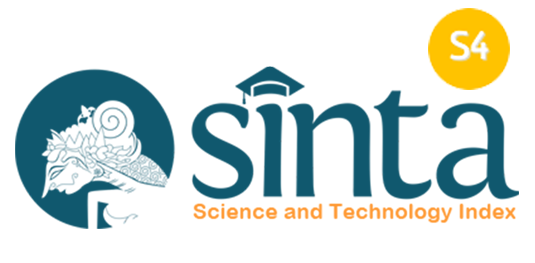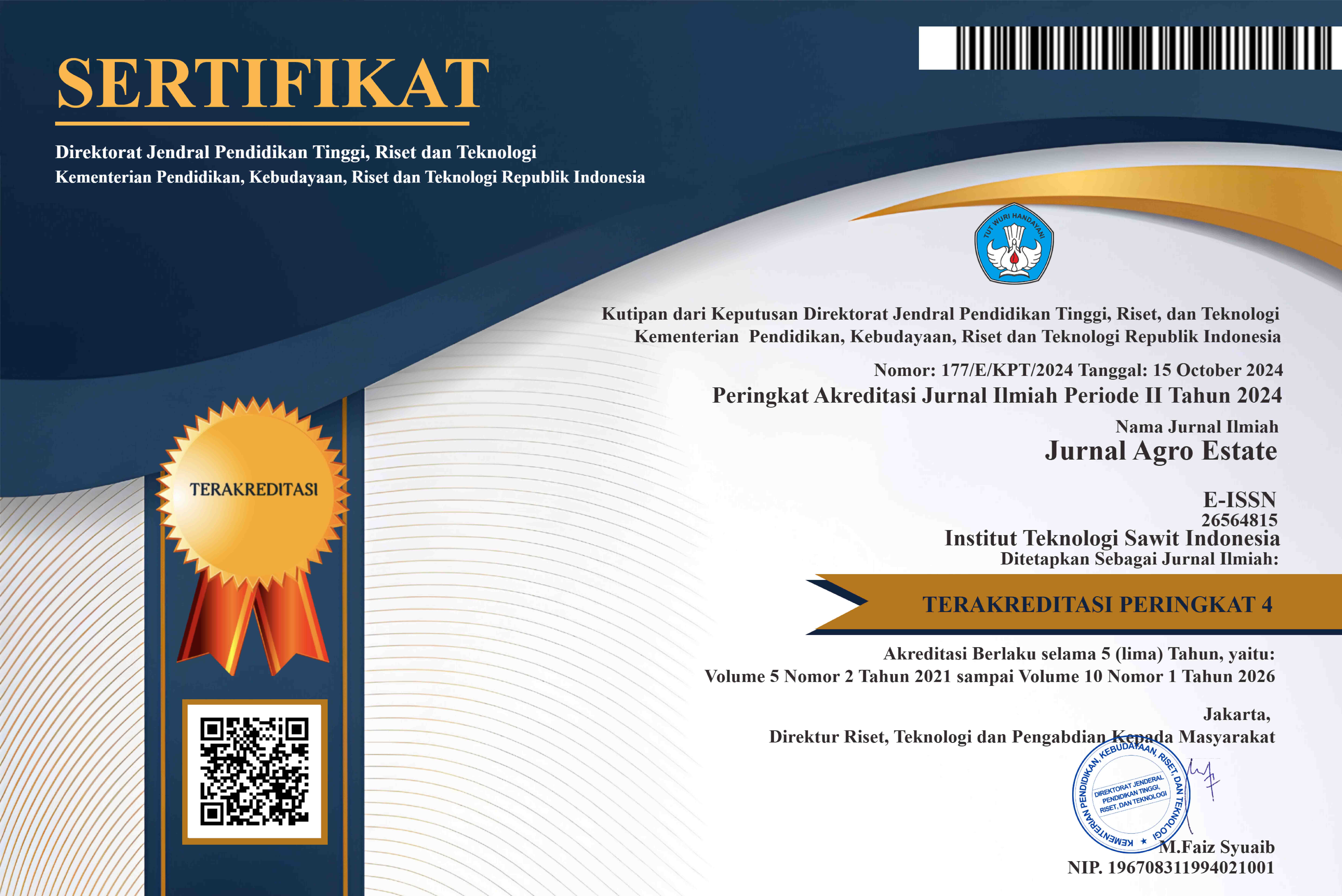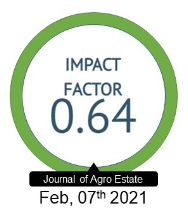ANALISIS KESESUAIAN LAHAN DAN POTENSI PENGEMBANGAN TANAMAN PORANG PADA KAWASAN PERKEBUNAN KELAPA SAWIT DAN KARET DI PROVINSI RIAU
DOI:
https://doi.org/10.47199/jae.v6i1.98Keywords:
intercropping, Rubber, Chips, Palm Oil, PorangAbstract
Porang (Amorphophallus Muelleri Blume) contain quite high glucomannan (15-64% dry basis). Porang are used as raw materials for food and industry since 1,000 years ago in Japan and China. The high content of glucomannan in porang makes this plant much sought after, especially in the food and health industries. Porang plants need to be researched so that they can be intercropped for oil palm and rubber. Analysis of drainage, texture, coarse material, soil depth, peat thickness and peat maturity was carried out using the borring method and field soil physics tests were carried out. Observation of the level of slope and erosion hazard using a clinometer. And for observations of puddles, surface rocks and rock outcrops with a percentage (%) visualization of the rock volume in the field. Meanwhile, the value of CEC, base saturation, and organic C was obtained from soil analysis resulting from borring sampling in the laboratory. Based on observations and analysis, gardens A, B and C were obtained according to the suitability of the S3 land. To increase the added value, porang is produced in the form of chips. The factory construction investment requires working capital funds and an investment of IDR 3,176,308,600. Investment analysis with tuber seeds showed a positive NPV of Rp. 14,021,379,827.63, IRR >20% and a payback period of 2 years, while the construction of a factory with frog seed cultivation showed a positive NPV of Rp. 3,976,301,962.35, IRR >20%. and Payback Period 4 years 2 months. Based on the two alternatives above, it can be concluded that the investment in building a factory in A plantation by cultivating tuber seeds is better than frog seeds which are shown to have better NPV and Payback Period values
Downloads
References
Faridah, A., Widjanarko, S. B., Sutrisno, A., & Susilo, B. (2012). Optimasi Produksi Tepung Porang Dari Chip Porang Secara Mekanis Dengan Metode Permukaan Respons. Jurnal Teknik Industri, 13(2), 158. https://doi.org/10.22219/jtiumm.vol13.no2.158-166
Nasir, S., St.A., . Rahayuningsih, Radjit, B. S., Ginting, E., Harnowo, D., & Mejaya, I. M. J. (2015). 2015_Porang.Pdf (pp. 978-979–1159).
Ni Made Astuti Wahyu Utami. (2021). Economic Prospects of Porang Plant Development in the Pandemic Time Covid-19. VIABEL: Jurnal Ilmiah Ilmu-Ilmu Pertanian, 15(1), 72–82. https://doi.org/10.35457/viabel.v15i1.1486
Sawit, P. K. (2021). sebagai Sumber Pendapatan pada Masa Tumpang Sari Tanaman Pangan Program PSR. 2(1), 1–5.
Siswanto, B., & Karamina, H. (2016). Persyaratan lahan tanaman porang (Amarphopallus ancophillus ). Jurnal Buana Sains, 16(1), 57–70.
Syahyuti. (2021). Ekspor Porang dan Edamame Meningkat. https://pse.litbang.pertanian.go.id/ind/index.php/covid-19/berita-covid19/769-ekspor-porang-dan-edamame-meningkat.html
Downloads
Published
How to Cite
Issue
Section
License
Copyright (c) 2023 Agro Estate

This work is licensed under a Creative Commons Attribution 4.0 International License.























